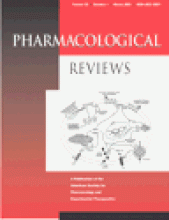Abstract
In mammalian cells, the process of malignant transformation is characterized by the loss or down-regulation of tumor-suppressor genes and/or the mutation or overexpression of proto-oncogenes, whose products promote dysregulated proliferation of cells and extend their life span. Deregulation in intracellular transduction pathways generates mitogenic signals that promote abnormal cell growth and the acquisition of an undifferentiated phenotype. Genetic abnormalities in cancer have been widely studied to identify those factors predictive of tumor progression, survival, and response to chemotherapeutic agents. Pharmacogenetics has been founded as a science to examine the genetic basis of interindividual variation in drug metabolism, drug targets, and transporters, which result in differences in the efficacy and safety of many therapeutic agents. The traditional pharmacogenetic approach relies on studying sequence variations in candidate genes suspected of affecting drug response. However, these studies have yielded contradictory results because of the small number of molecular determinants of drug response examined, and in several cases this approach was revealed to be reductionistic. This limitation is now being overcome by the use of novel techniques, i.e., high-density DNA and protein arrays, which allow genome- and proteome-wide tumor profiling. Pharmacogenomics represents the natural evolution of pharmacogenetics since it addresses, on a genome-wide basis, the effect of the sum of genetic variants on drug responses of individuals. Development of pharmacogenomics as a new field has accelerated the progress in drug discovery by the identification of novel therapeutic targets by expression profiling at the genomic or proteomic levels. In addition to this, pharmacogenetics and pharmacogenomics provide an important opportunity to select patients who may benefit from the administration of specific agents that best match the genetic profile of the disease, thus allowing maximum activity.
- The American Society for Pharmacology and Experimental Therapeutics
PharmRev articles become freely available 12 months after publication, and remain freely available for 5 years.Non-open access articles that fall outside this five year window are available only to institutional subscribers and current ASPET members, or through the article purchase feature at the bottom of the page.
|






